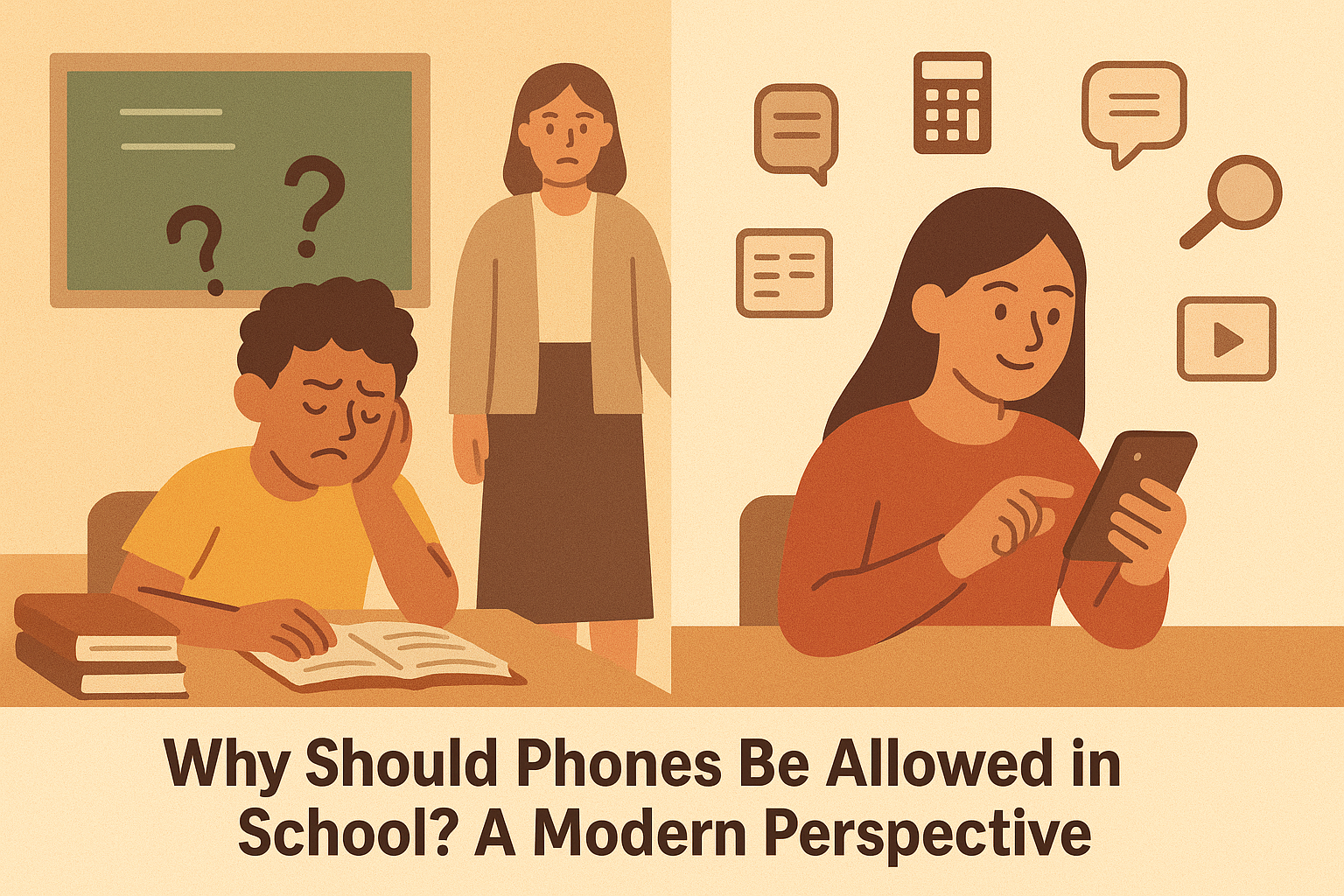The question of whether mobile phones should be allowed in schools has sparked debates among educators, parents, and students for years. Some argue that cell phones are distractions, while others believe they’re powerful learning tools. In today’s digital-first world, where technology shapes how we communicate, study, and prepare for the future, it’s worth asking: why should phones be allowed in school?
Let’s dive into the key reasons why students should have phones in school, the potential drawbacks, and how schools can find the right balance.
1. Phones as Learning Tools in the Classroom
Smartphones are more than social media and texting devices—they’re mini-computers. Allowing phones in classrooms can:
- Give students instant access to educational apps, e-books, and online resources.
- Support personalized learning through tools like Google Classroom, Quizlet, and language apps.
- Encourage digital literacy, a skill every student needs in the modern workforce.
Instead of banning them outright, schools can teach students how to use mobile phones responsibly for academic growth.
2. Preparing Students for a Tech-Driven Future
Whether in university or the workplace, technology is unavoidable. Cell phone use in high schools can help bridge the gap between education and real-world applications by:
- Training students to manage digital devices in professional settings.
- Teaching the balance between online productivity and distraction.
- Familiarizing them with collaboration tools that mimic workplace environments.
Phones aren’t going anywhere, so schools play a role in preparing students for responsible usage.
3. Safety and Communication with Parents
One of the strongest reasons why students should have phones in school is safety. Emergencies happen, and phones provide a direct line between students and parents. For example:
- Parents can quickly contact their children if plans change.
- Students can call for help in case of emergencies.
- Location-sharing features provide added peace of mind.
This reassurance is particularly valuable for parents of younger students or those in large urban schools.
4. Encouraging Responsibility and Independence
Opponents often ask: should cell phones be allowed in school if they encourage distractions? The answer lies in teaching responsibility. Allowing phones gives students the chance to:
- Learn self-discipline by managing phone use during study hours.
- Develop time management skills with calendar and reminder apps.
- Take ownership of their learning and decisions.
Instead of shielding students from potential distractions, schools can teach them how to handle them effectively.
5. Real-World Applications in Learning
Phones can turn a traditional lesson into something interactive. Imagine:
- Using phones for quick research during debates.
- Incorporating augmented reality (AR) apps in science lessons.
- Encouraging students to create digital presentations or videos.
These methods not only make classes more engaging but also prepare students for future careers where technology is key.
Addressing the Concerns: Why Should Phones Not Be Allowed in School?
Critics argue that mobile phones distract students, encourage cheating, or promote cyberbullying. These are real concerns—but banning phones entirely may not be the solution. Instead, schools can:
- Establish clear phone-use policies (e.g., only for lessons, not during tests).
- Use phone lockers or storage during exams to prevent cheating.
- Educate students about digital etiquette and online safety.
Balancing structure with trust allows schools to minimize risks while maximizing benefits.
6. How Often Phones Should Be Used in Schools
The key isn’t whether phones should be allowed, but how and when they’re used. Effective strategies include:
- Allowing phones during breaks and study periods, but limiting use during direct instruction.
- Encouraging teachers to integrate phones into lesson plans where appropriate.
- Offering workshops for students on responsible technology use.
This approach ensures phones remain tools, not distractions.
Final Thoughts: Should Mobile Phones Be Allowed in Schools?
The debate continues, but one thing is clear: smartphones are deeply embedded in modern life. Why should phones be allowed in school? Because they prepare students for the future, provide safety, enhance learning, and encourage responsibility. Rather than banning them, schools should embrace the opportunity to teach students how to use this powerful tool wisely.
In short, phones don’t have to be the enemy of education—they can be its ally.












